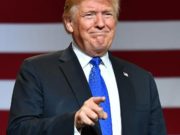Any law regulating an individual or organization’s free speech rights also implicates their First Amendment rights. The first five words of the First Amendment, “Congress shall make no law…,” establish a barrier to legislative restrictions on political speech rights. However, amidst growing concern by some over increases in political spending, Congress and state legislatures have sought to infringe on the First Amendment’s free speech protections.
According to the Supreme Court, the only constitutionally viable regulation of free political speech is to prevent corruption or the appearance thereof. Under federal and state law, it is illegal to bribe or otherwise unlawfully influence public officials for personal gain. With this quid pro quo corruption illegal, the only other form of corruption available to address is ‘corruption’ in the marketplace of ideas. Generally, this involves the active expression of political opinion that competes with other voices for recognition. Campaign finance regulations regulate this form of speech, contrary to the guarantees offered by the First Amendment.
If campaign money is so effective in corrupting politicians and the political process, why isn’t there more money flowing into the system? This is the question posed in the study, “Why is There So Little Money in Politics?” After assessing the amount of money invested in the process by various sectors and groups, the authors concluded that money itself has minimal influence on garnering votes. Instead, far more people give money to candidates they believe in, not in an effort to sway a candidate’s votes or political opinions. This contradicts the premise that more money in politics inherently means more corruption in government.
In 2011, Americans spent $96 billion on beer purchases, and $117 billion on trips to McDonald’s and other fast food establishments. They spent $34.6 billion on gambling and $65 billion on cans of Diet Coke and other soft drinks. In 2011, Americans spent $4.14 billion celebrating on St. Patty’s Day alone. In 2012, Americans spent $7 billion on political campaigns. Yet, when the Federal Election Commission (FEC) announced the figure, it was described as, “eye-popping.” If the federal government costs Americans close to $73 billion in burdensome regulations annually, why shouldn’t Americans spend less than a tenth that amount to campaign for or against those who created existing regulations, or for or against those who will have the power to shape future policy on myriad issues? If the government takes in more than $5 trillion (that’s trillion with a “T”) in taxes annually, don’t citizens have a right to speak about how their tax dollars are spent through campaign spending? To decry these contributions as an “influx of money flooding into campaigns” severely misrepresents the figure.
Regardless of the intent behind campaign finance laws, regulations affecting political speech rights carry unintended (or intended) consequences. Campaign finance regulations typically inhibit challengers from running more effective campaigns against entrenched incumbents who have the benefits of greater campaign war chests, name recognition, media access, and party support. They reduce candidate diversity to those who can largely self-fund their campaigns, homogenizing the pool of office-seekers to wealthy individuals.
When lawmakers create campaign finance regulations, they often model laws to shield themselves from electoral challenge. For the integrity of the electoral process and the First Amendment, the regulatory scope of campaign finance laws must shrink.













